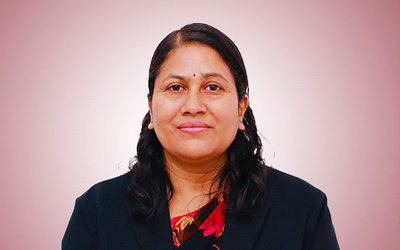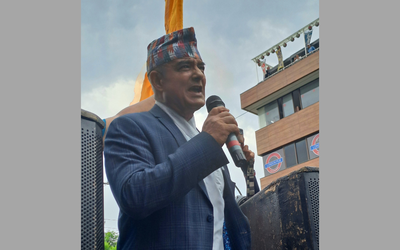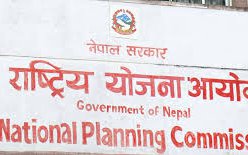More on News





A South Asia Regional Fulbright Alumni Workshop on the Water-Energy-Food Nexus convened in Kathmandu on February 10-12, 2015. The workshop assembled 45 South Asian alumni of the Fulbright, Humphrey, and International Visitors Leadership Programs, and another 40 regional and international experts, to promote shared understanding on water, energy, and food issues.
Fulbright Commission Executive Director, Dr. Laurie Vasily, said “This workshop brings together Fulbright alumni from across the region to discuss these important issues and therefore sustains the overall Fulbright Program goal of fostering mutual understanding among peoples of countries around the world.” The Fulbright Commission is the main workshop organizer, supported by the World Bank Group, the International Centre for Integrated Mountain Development (ICIMOD), the Nepal Water Conservation Foundation (NWCF), and the U.S. Embassy in Nepal said a press release issued by American Embassy.
The water, energy, and food sectors are traditionally considered in isolation, but the workshop promoted cross-sectoral integration on these issues to encourage effective resource management. During special remarks, U.S. Deputy Assistant Secretary of State Fatema Z. Sumar said, “To attain food security, we need to use water and energy more efficiently and lessen agriculture’s negative effects on the water supply. Better water resources management, sustainable and equitable access to water and use of improved, energy-efficient technologies are steps in this direction.”
Underlining the significance of water in unlocking the economic potential of a country, World Bank’s Lead Water Resources Specialist Dr. William Young said, “There’s growing recognition that efficient management of water resources must become an integral part of the solutions needed to end poverty and boost shared prosperity in South Asia.”
“Our current de-nexused approaches have led to enormous avoidable wastes,” added Dipak Gyawali of Nepal Water Conservation Foundation. Experts have estimated that wasted food between harvesting and dining table averages as high as 50 percent of the production. By 2030, demands for food, along with water and energy, are projected to increase by 30-50 percent globally, largely due to population and economic growth.
Dr. Philippus Wester, ICIMOD’s Chief Scientist of Water Resources Management said, “Mountains play a special role in the water-energy-food nexus, especially in the Hindu Kush Himalayan region. Rivers originating from the mountains support agriculture and hydropower across the region and are a source of water for downstream communities.” Dr. Wester concluded, “The ever deepening links between water, energy, and food make it imperative that countries come together on a multilateral footing to optimize the benefits inherent in the water-energy-food nexus.”







